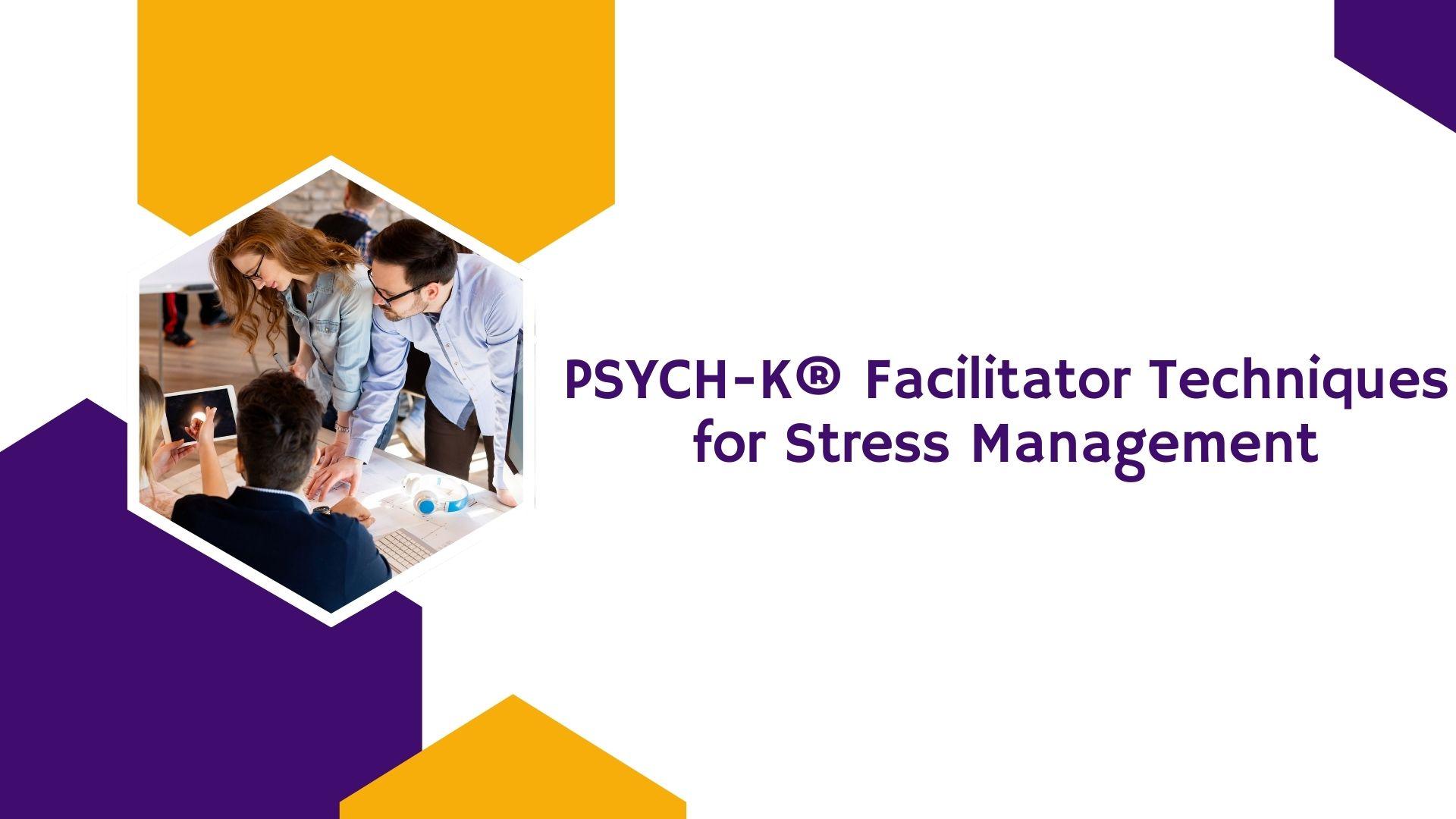In today’s fast-paced world, stress has become a constant companion for many. Whether it comes from work pressures, personal challenges, or unexpected life events, unmanaged stress can negatively impact both mental and physical health. While traditional methods such as meditation, exercise, and therapy have proven effective, an increasing number of people are turning to PSYCH-K® facilitators to help reprogram limiting beliefs and foster resilience. PSYCH-K®, a mind-body modality, emphasizes the power of the subconscious in shaping how individuals perceive and respond to stress. Facilitators play a crucial role in guiding clients through techniques that can unlock inner balance and ease the burden of stress.
Understanding Stress Through the PSYCH-K® Lens
Stress often arises from how we interpret situations rather than the events themselves. For example, two people may face the same challenge, but one feels overwhelmed while the other responds with calm determination. PSYCH-K® facilitators understand that subconscious beliefs largely dictate these responses. Limiting beliefs such as “I am not capable,” or “Life is too difficult,” can amplify stress. By shifting these beliefs, facilitators empower individuals to see challenges as manageable opportunities rather than threats.
Core PSYCH-K® Techniques for Stress Management
Whole-Brain Integration
One of the foundational techniques in PSYCH-K® is whole-brain integration. Stress often activates the brain’s survival mechanisms, leading to a “fight, flight, or freeze” response dominated by one hemisphere of the brain. Whole-brain integration helps clients access both hemispheres simultaneously, promoting a state of calm clarity. This balanced brain state enables individuals to think creatively, make better decisions, and respond to stressful situations with greater resilience.
Balances for Limiting Beliefs
Facilitators guide clients through specific “balances,” which are processes designed to reprogram subconscious beliefs. For stress management, balances might focus on transforming statements like:
- “I can’t handle this pressure” into “I respond to challenges with calm and confidence.”
- “Stress controls my life” into “I am in control of my emotions and responses.”
These new subconscious programs shift how individuals experience stress in everyday life.
Stress Transformation Protocol
PSYCH-K® includes a technique specifically designed to transform stressful memories or perceptions. By revisiting a stressful situation in a safe and supportive environment, the facilitator helps the client reinterpret the memory. Instead of feeling trapped by the emotional weight of the event, the client can reframe it as a learning opportunity. This process reduces the lingering emotional charge associated with stress triggers.
Goal Setting and Subconscious Alignment
Another effective technique involves aligning conscious goals with subconscious support. A facilitator helps clients define what “stress-free living” means for them—whether it’s achieving work-life balance, cultivating patience, or remaining calm in conflict. Through PSYCH-K® processes, the subconscious mind becomes aligned with these goals, ensuring consistent inner support rather than resistance when facing stressful situations.
Body-Based Integration Techniques
Stress often manifests physically—tight shoulders, shallow breathing, or fatigue. PSYCH-K facilitators sometimes incorporate body-based practices within balances, such as mindful posture shifts, gentle movements, or breathing exercises. These techniques not only anchor new beliefs but also create a physiological state of relaxation, reinforcing the subconscious changes.
Benefits of PSYCH-K® Techniques for Stress Relief
- Immediate Relief: Many clients experience a sense of calm and lightness right after a session.
- Long-Term Resilience: By reprogramming beliefs at the subconscious level, individuals are less likely to be triggered by future stressors.
- Holistic Well-Being: Stress management improves not just mental clarity but also physical health, as reduced stress contributes to better sleep, stronger immunity, and balanced energy.
- Empowered Living: Clients report feeling more in control of their responses, leading to healthier relationships and improved performance at work.
The Role of the Facilitator
A PSYCH-K® facilitator is not a therapist or a coach but rather a guide who creates a safe, supportive environment for transformation. Their role is to hold space without judgment, ask empowering questions, and apply PSYCH-K® processes that help clients access their innate wisdom. For stress management, facilitators ensure that clients feel comfortable exploring both current challenges and past experiences while fostering an atmosphere of trust and collaboration.
Integrating PSYCH-K® into Daily Stress Management
While sessions with a facilitator are powerful, stress management is most effective when clients apply new perspectives in daily life. Facilitators often encourage practices such as:
- Using affirmations aligned with subconscious changes.
- Pausing for conscious breathwork in moments of tension.
- Noticing shifts in reactions to stressors and celebrating small victories.
- Scheduling follow-up sessions to reinforce progress and address new challenges.
Final Thoughts
Stress is inevitable, but suffering under its weight is not. Through PSYCH-K®, individuals can access the subconscious mind—the powerhouse of beliefs and perceptions—and transform the way they experience life’s challenges. PSYCH-K facilitators bring practical techniques such as whole-brain integration, belief balances, and stress transformation protocols to help clients release emotional burdens and foster resilience. The result is a healthier, more empowered approach to stress that promotes well-being, clarity, and balance.
By working with a PSYCH-K® facilitator, people don’t just learn to cope with stress—they learn to thrive beyond it.

